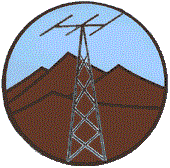ABOUT AMATEUR RADIO….
A housewife in North Carolina makes friends over the radio with another ham in Lithuania. An Ohio teenager uses his computer to upload a digital chess move to an orbiting space satellite, where it’s retrieved by a fellow chess enthusiast in Japan. An aircraft engineer in Florida participating in a “DX contest” swaps his call sign and talks to hams in 100 different countries during a single weekend. In California, volunteers save lives as part of their involvement in an emergency response. And from his room in Chicago, a ham’s pocket-sized hand-held radio allows him to talk to friends in the Carolinas. This unique mix of fun, public service and convenience is the distinguishing characteristic of Amateur Radio. Although hams get involved for many reasons, they all have in common a basic knowledge of radio technology and operating principles, and pass an examination for the FCC license to operate on radio frequencies known as the “Amateur Bands.” These bands are radio frequencies reserved by the Federal Communications Commission (FCC) for use by hams at intervals from just above the AM broadcast band all the way up into extremely high microwave frequencies. For its licensees, Amateur Radio is not only an opportunity to serve the community during emergencies but also a source of friendship, recreation and personal growth. In addition, many people begin their career paths in electronics and wireless communications with a resume of early experiences in Amateur Radio.
WHY DO I NEED A LICENSE?
Although the main purpose of Amateur Radio is fun, it is called the “Amateur Radio Service” because it also has a serious face. The FCC created this “Service” to fill the need for a pool of experts who could provide backup during emergencies. In addition, the FCC acknowledged the ability of the hobby to advance the communication and technical skills of radio, and to enhance international goodwill. This philosophy has paid off. Countless lives have been saved where skilled hobbyists act as emergency communicators to render aid, whether it’s during an earthquake in Haiti or a hurricane in the U.S.
WHAT’S WITH MORSE CODE ANYWAY?
Do I Have to Learn Morse Code? Not any morel While many hams LIKE to use Morse code, regulations do not require it to get a license.
The Sierra Amateur Radio Club offers several classes for those interested in communications. Click on Radio Classes for more information.

